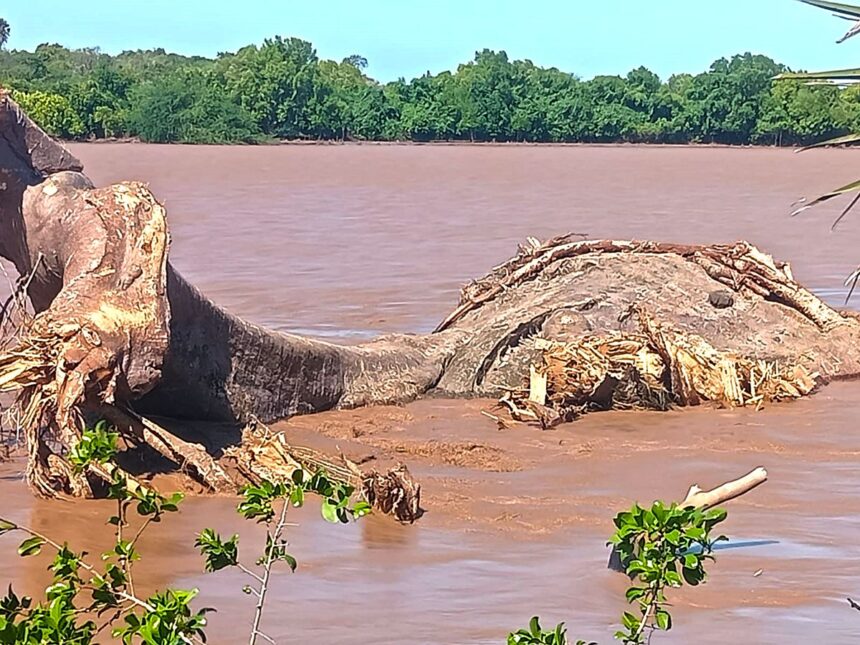Imagine a grand shujaa, a warrior so resilient he’s faced more battles than a mzee telling war stories by the bonfire. For almost a thousand years, this warrior stood tall, roots deep in the soil, branches reaching for the sky, weathering storms like a champ. But one day, the floodwaters came like a gang of rowdy matatus za Ronga, and our hero, the mighty Mekatilili baobab, was swept off its feet. After surviving countless seasons, colonial battles, and the relentless march of time, this ancient guardian finally bowed to the forces of nature, a harsh reminder that when climate change knocks, even the strongest fall.
This baobab wasn’t just any tree, bana. It was like the OG squad leader of all the trees in Kenya, a sacred spot where even our heroine Mekatilili used to plot her next moves against the Brits. It stood as a living testament to resilience, holding its ground through wars and droughts, like that one friend who never missed a nyama choma party, no matter what. But the floods, fueled by the madness of a changing climate, came in swinging, and now, this once-proud giant is floating down the Sabaki River like a lost flip-flop in a storm drain.
And before we start pointing fingers at the floods, let’s remember who’s been poking this bear for years. Pollution, deforestation, and climate change are like that annoying guy who keeps pressing all the wrong buttons, ignoring the warnings until it’s too late. The floods might have delivered the final blow, but we humans have been chiseling away at the tree’s strength for far too long. This isn’t just nature doing its thing; this is nature reacting to the mess we’ve made.
So here we are, mourning not just a tree, but a whole library of stories, legends, and memories. The Mekatilili baobab was like that wise elder in the village who knows everything about everyone and still keeps it 100. Now, all we’ve got left are video clips and a few tales shared over chai. And with its fall, we’re left with a haunting question: If a tree that’s stood for nearly a thousand years can be uprooted by climate change, what else is at risk?
Next time you see a baobab, take a moment, say a little “rest in peace” to its fallen cousin, and maybe, just maybe, think twice about how we treat the planet. Because if even the mightiest baobabs aren’t safe, what does that say about the rest of us, eh? The time to act on climate change is now, before more giants fall, and we’re left with nothing but regret.


Leave a Reply